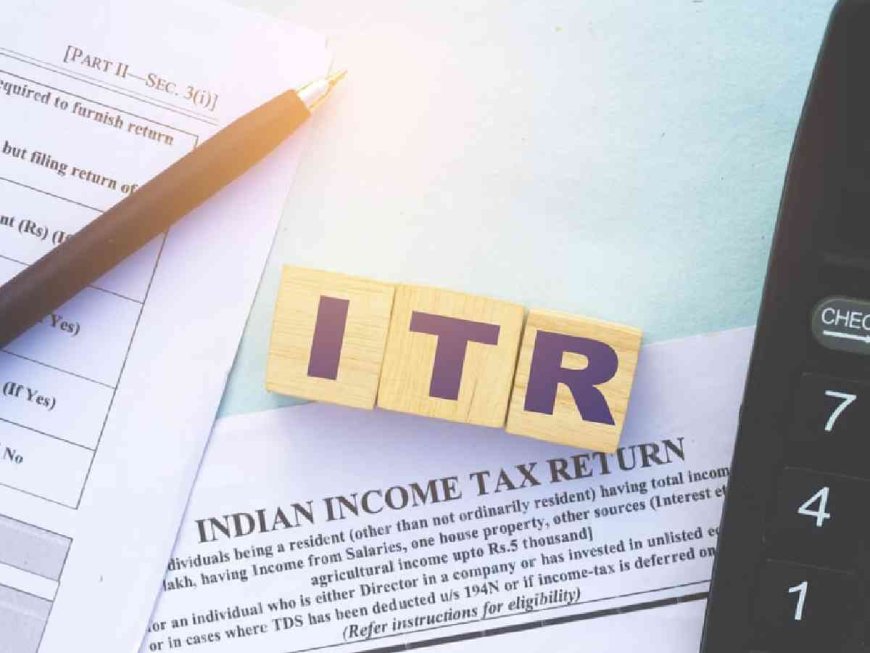Last Chance to File Your Income Tax Return: Final Deadline and Penalty Information
The deadline to file your Income Tax Return is fast approaching. Find out the final date, penalties for late filing, and everything you need to know about submitting a late ITR in 2025.

Income Tax Return: Last Call to File Late ITR, Penalty Information
As the deadline to submit your Income Tax Return (ITR) approaches, it’s essential to understand the consequences of late filing and how to submit your taxes correctly. If you missed the original due date, don't panic—this blog provides you with the crucial details on the final day to file your ITR and the penalties for late submission.
Let’s break down everything you need to know, step by step.
1. Understanding the Income Tax Filing Deadline
- In India, individuals and businesses must file their ITR for the financial year by a specific date, usually July 31st of the assessment year.
- However, if you miss this date, the government provides an extended window for submitting your return.
- The final date to file your late ITR is December 31st of the assessment year. After this date, you will face severe penalties or may not be able to file at all for that year.
2. The Importance of Filing Your ITR on Time
- Filing your ITR on time helps avoid penalties, interest charges, and legal trouble.
- Timely submission ensures that you don’t lose out on any tax refunds.
- Additionally, it is essential for maintaining your financial records and complying with the law.
3. Consequences of Filing Late: Penalties
- Penalty for late filing: If you file after the original due date but before the final deadline, you will face a penalty of up to Rs. 5,000 depending on how late you are.
- For taxpayers with an annual income of less than Rs. 5 lakh, the penalty is reduced to Rs. 1,000.
- The penalty will increase further if the filing is done after the final deadline.
- Interest on unpaid taxes: If you owe taxes and file late, the government will charge interest at the rate of 1% per month on the tax due, compounded monthly, until the full payment is made.
- Loss of carry-forward benefits: If you file late, you may lose your ability to carry forward certain deductions, such as set-off of losses from previous years.
4. Steps to File Your Late ITR
If you’ve missed the deadline, here's how to proceed:
- Visit the official Income Tax e-filing portal: Go to the Income Tax Department website and log in with your credentials.
- Choose the appropriate ITR form: Select the correct form based on your income type. Most individuals will need to fill out ITR-1 (Sahaj) or ITR-2 (for income from multiple sources).
- Fill in the required details: Ensure that all your income details, deductions, and other necessary information are accurate.
- Pay any outstanding taxes: If you owe taxes, ensure that the payment is made to avoid additional penalties.
- Submit the form: Once everything is filled correctly, submit the form electronically through the portal.
5. When Can You Avoid Penalties?
While filing late incurs penalties, there are situations where the penalties can be waived or reduced:
- No tax liability: If you don't owe taxes (i.e., your income falls under the exemption limit), penalties may not apply.
- Refund claims: If you are entitled to a tax refund, filing late will not carry penalties but still incurs interest on unpaid taxes.
- Reasonable cause: If you missed the deadline due to unavoidable circumstances like medical emergencies, you may request the penalty to be waived by explaining your situation to the tax authorities.
6. Why You Should Avoid Delaying Your ITR Filing
- Avoiding penalty and interest: Filing on time ensures you don't have to pay extra penalties or interest.
- Tax refund: If you're due for a refund, the sooner you file, the sooner you can receive it.
- Legal compliance: Filing your ITR correctly ensures you stay in line with the tax laws of India, avoiding future complications.
- Loan applications and credit score: Filing timely ITR helps build a strong financial record, which is often required when applying for loans, mortgages, or credit cards.
7. What Happens After the Final Deadline?
After December 31st, if you haven’t filed your ITR:
- You may be restricted from claiming deductions or refunds for the financial year.
- The tax authorities may take legal action or impose additional fines, including prosecution in certain cases.
- You’ll miss out on the opportunity to carry forward any losses to the next year’s returns.
Conclusion
The clock is ticking for filing your Income Tax Return, and understanding the importance of timely submission can save you from hefty penalties. Even though you still have time to file your late ITR until December 31st, it’s always a good idea to file as soon as possible to avoid unnecessary fines, interest, and other issues.
Be sure to check your tax liabilities, penalties, and follow the correct steps for filing. Don’t let the deadline pass you by—file your ITR today to ensure a smooth financial year ahead.
What's Your Reaction?






















































